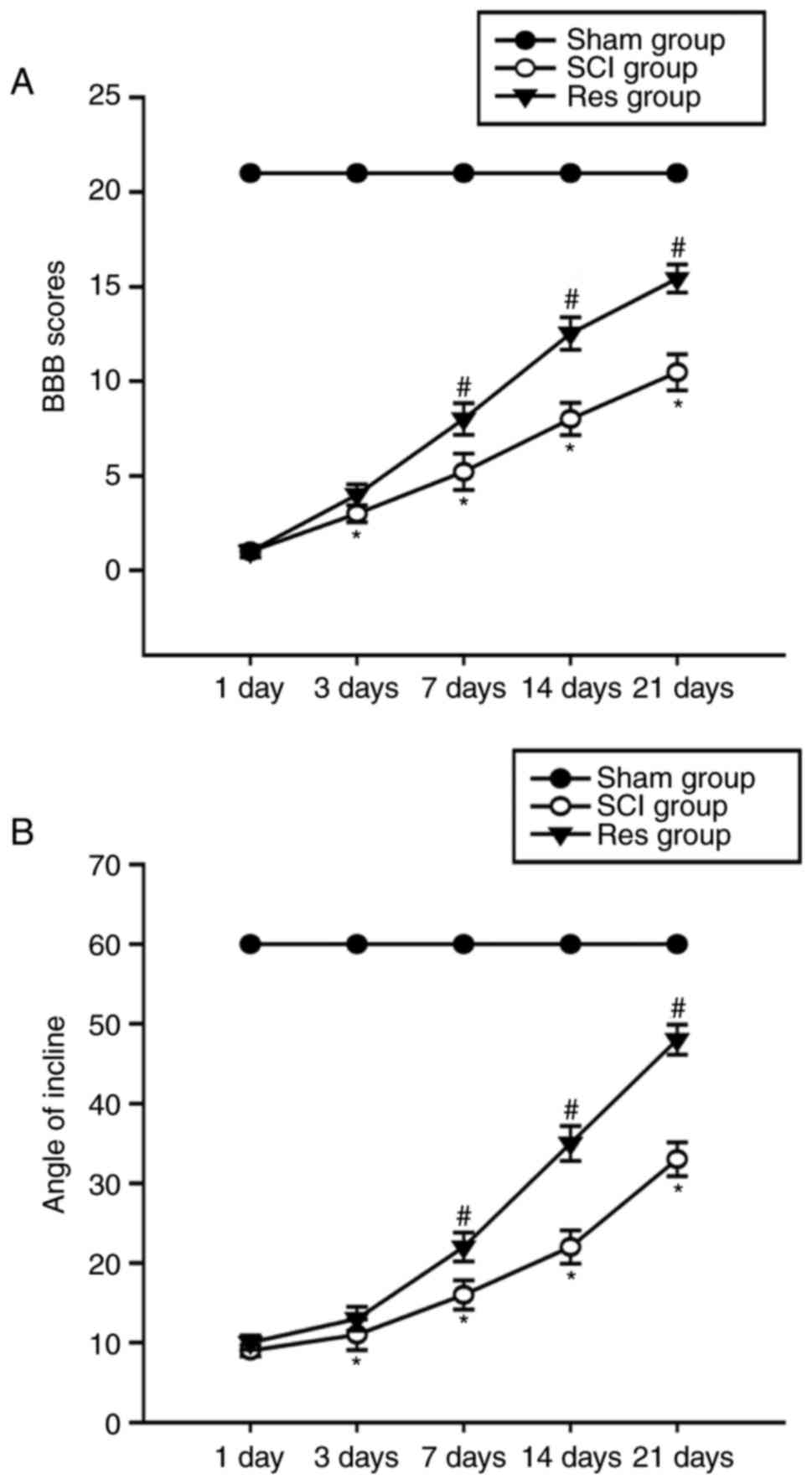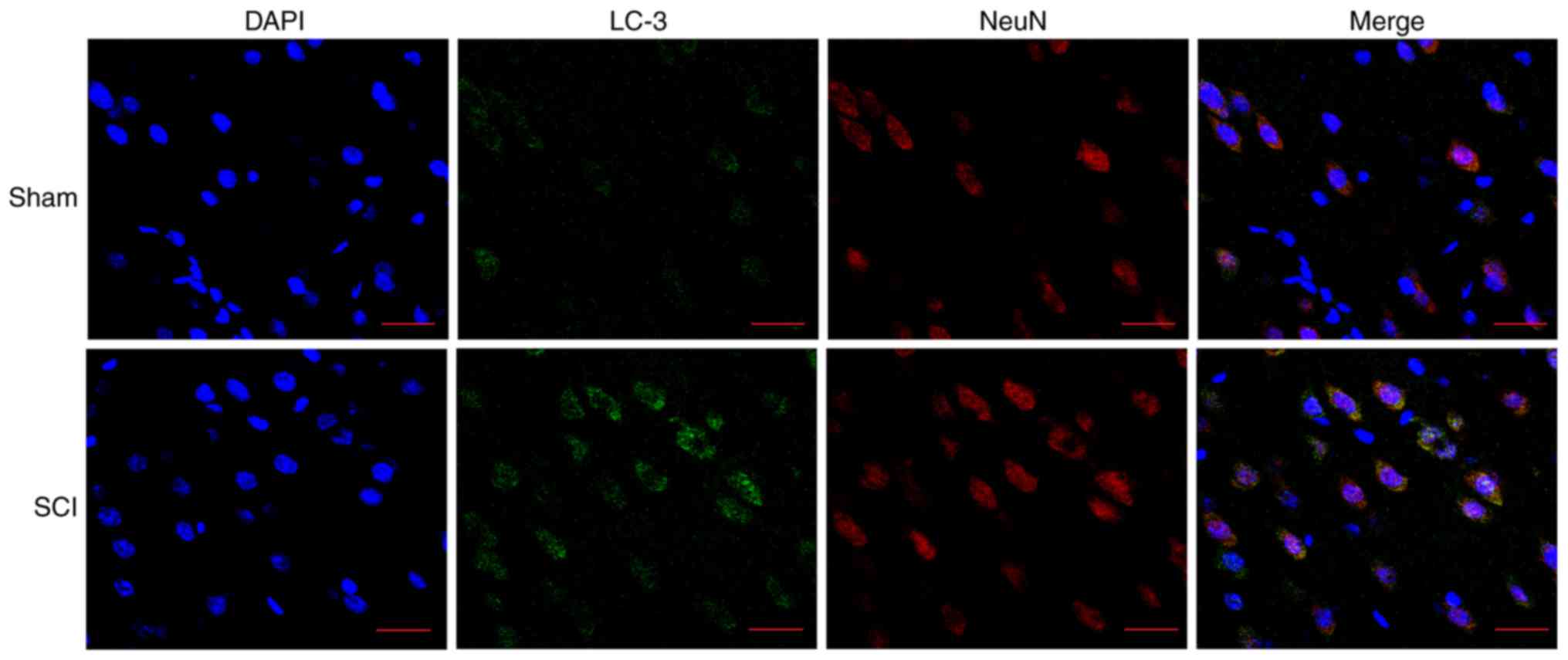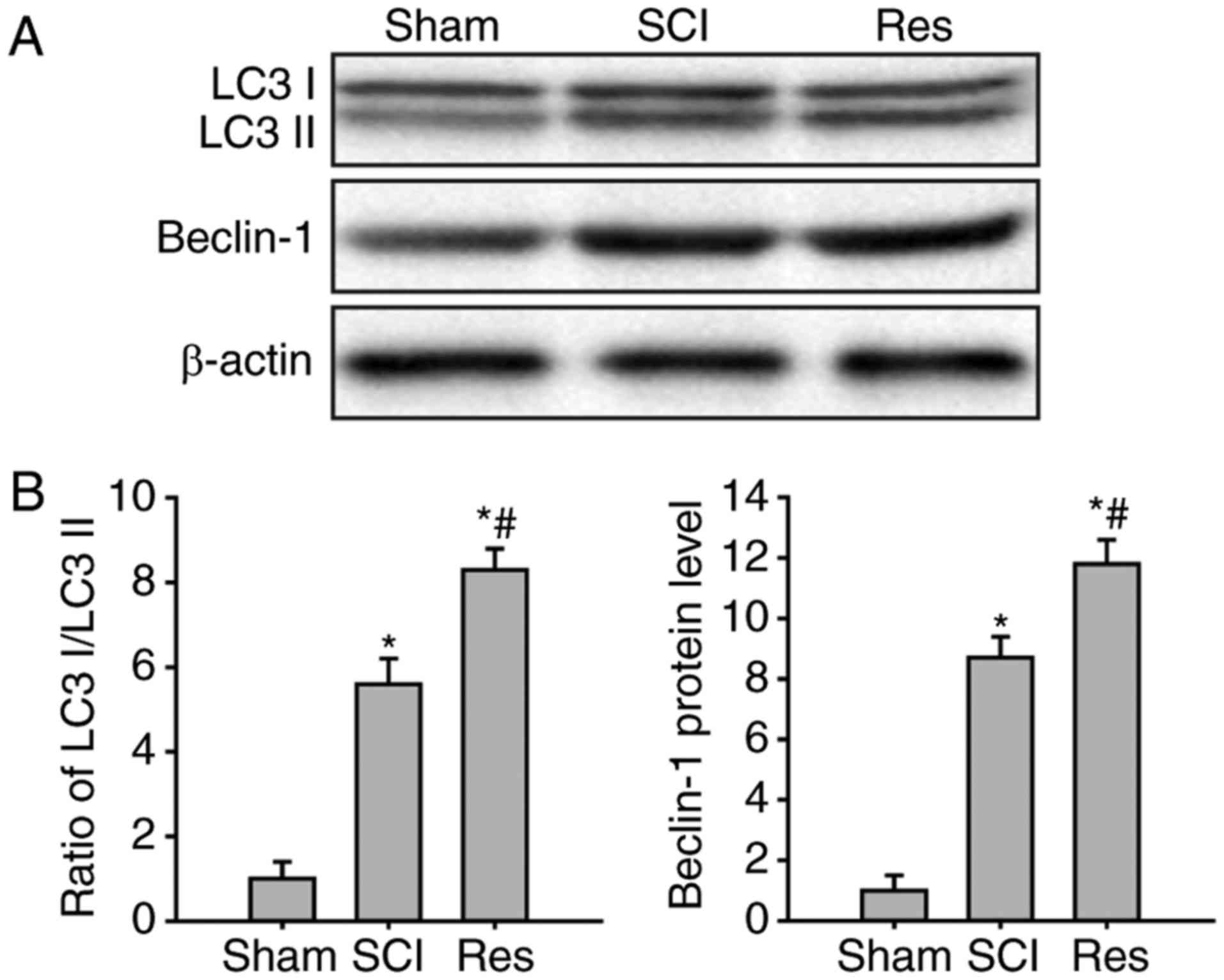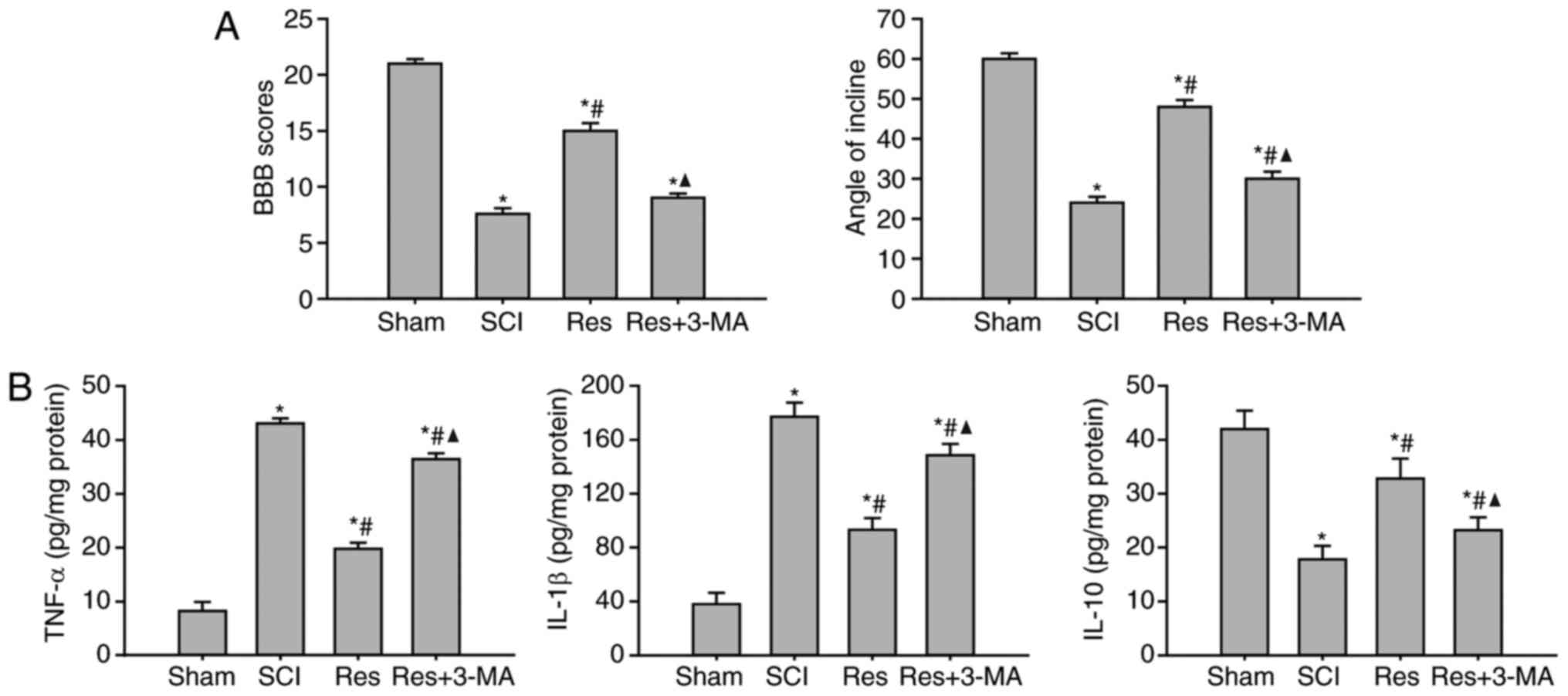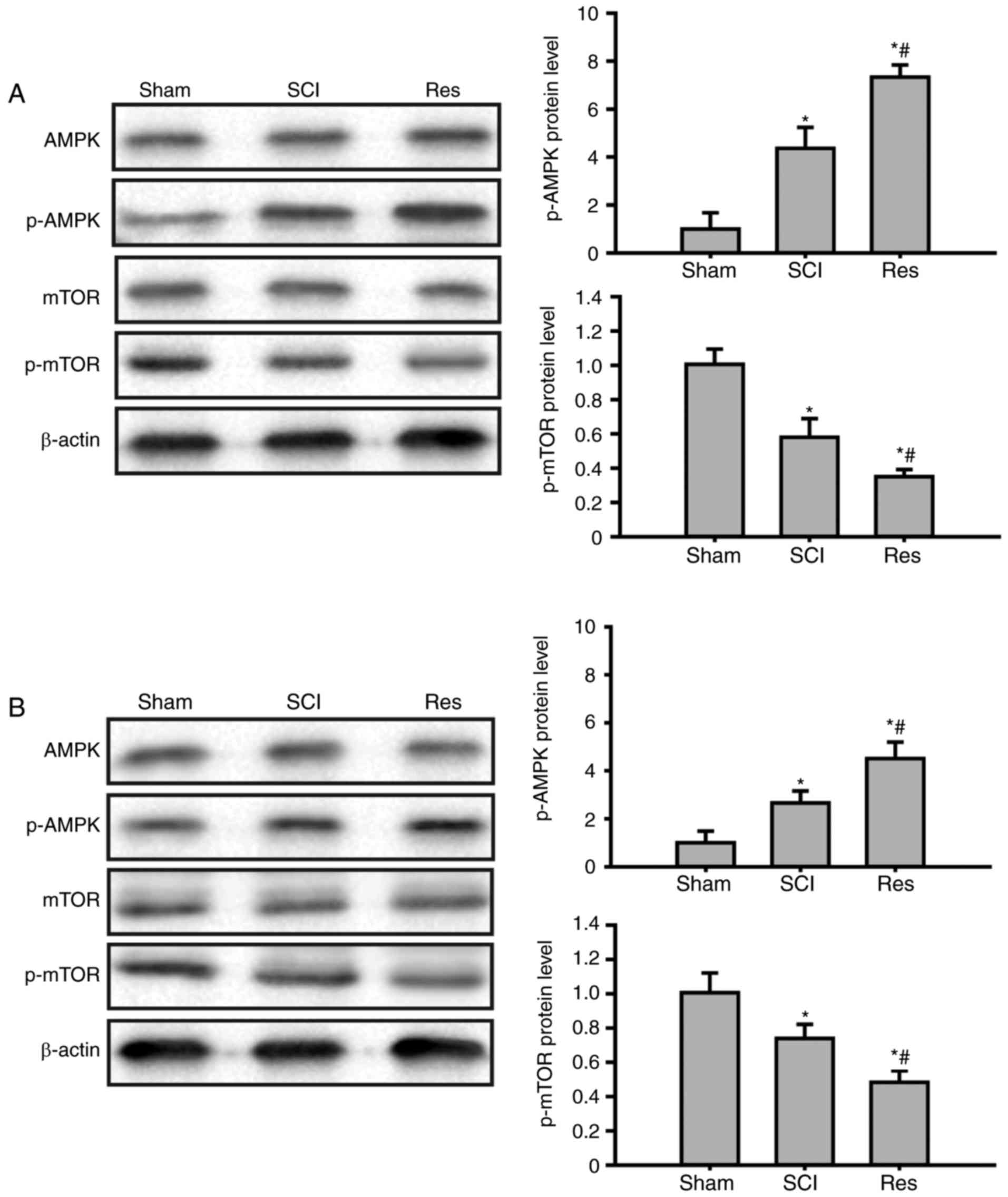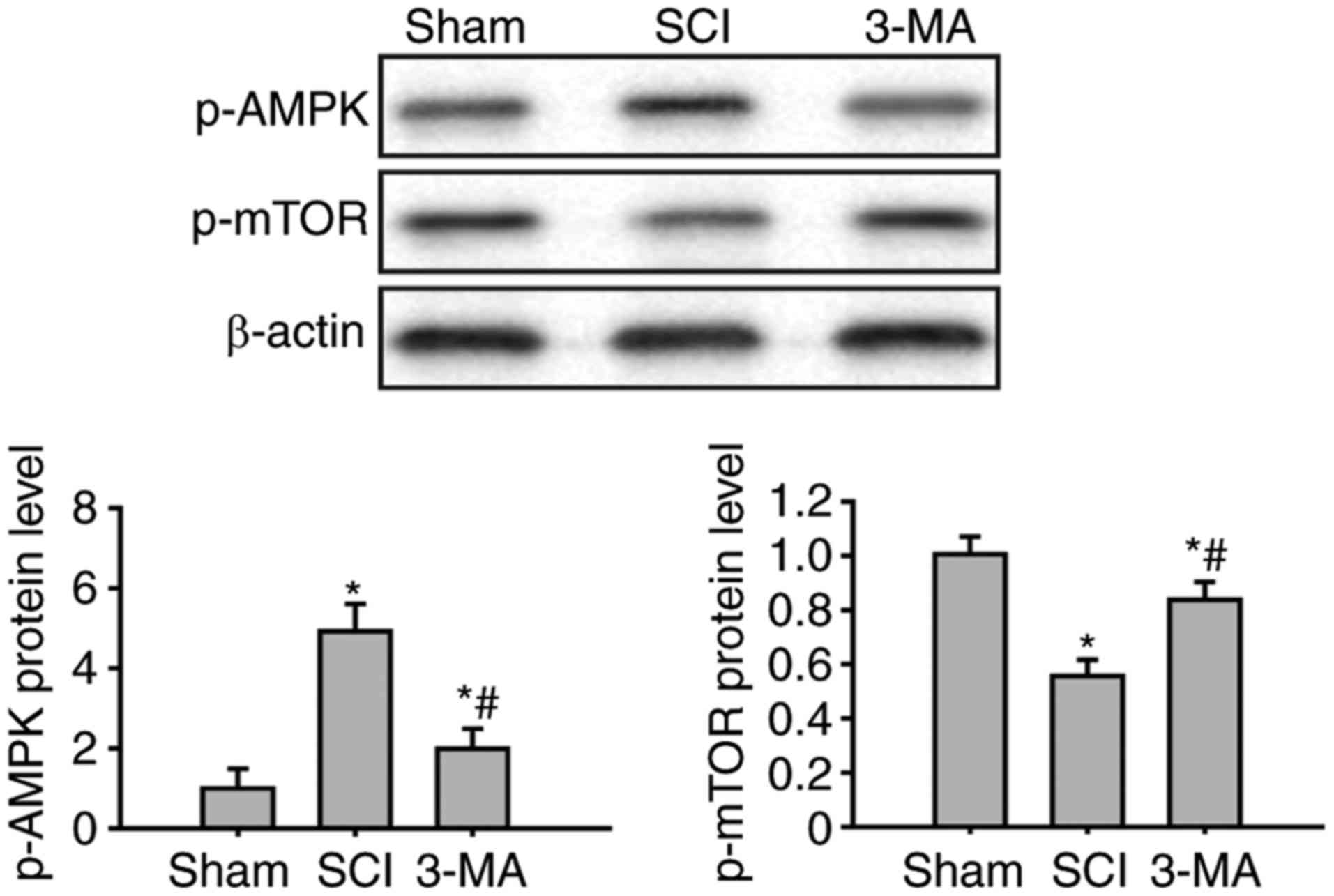|
1
|
Saunders LL, Clarke A, Tate DG,
Forchheimer M and Krause JS: Lifetime prevalence of chronic health
conditions among persons with spinal cord injury. Arch Phys Med
Rehabil. 96:673–679. 2015. View Article : Google Scholar : PubMed/NCBI
|
|
2
|
Moon YJ, Lee JY, Oh MS, Pak YK, Park KS,
Oh TH and Yune TY: Inhibition of inflammation and oxidative stress
by Angelica dahuricae radix extract decreases apoptotic cell death
and improves functional recovery after spinal cord injury. J
Neurosci Res. 90:243–256. 2012. View Article : Google Scholar : PubMed/NCBI
|
|
3
|
Sekhon LH and Fehlings MG: Epidemiology,
demographics, and pathophysiology of acute spinal cord injury.
Spine (Phila Pa 1976). 26 24 Suppl:S2–S12. 2001. View Article : Google Scholar : PubMed/NCBI
|
|
4
|
Li HT, Zhao XZ, Zhang XR, Li G, Jia ZQ,
Sun P, Wang JQ, Fan ZK and Lv G: Exendin-4 enhances motor function
recovery via promotion of autophagy and inhibition of neuronal
apoptosis after spinal cord injury in rats. Mol Neurobiol.
53:4073–4082. 2016. View Article : Google Scholar : PubMed/NCBI
|
|
5
|
Shintani T and Klionsky DJ: Autophagy in
health and disease: A double-edged sword. Science. 306:990–995.
2004. View Article : Google Scholar : PubMed/NCBI
|
|
6
|
Angliker N and Rüegg MA: In vivo evidence
for mTORC2-mediated actin cytoskeleton rearrangement in neurons.
Bioarchitecture. 3:113–118. 2013. View Article : Google Scholar : PubMed/NCBI
|
|
7
|
Lipinski MM, Wu J, Faden AI and Sarkar C:
Function and mechanisms of autophagy in brain and spinal cord
trauma. Antioxid Redox Signal. 23:565–577. 2015. View Article : Google Scholar : PubMed/NCBI
|
|
8
|
Nikoletopoulou V, Papandreou ME and
Tavernarakis N: Autophagy in the physiology and pathology of the
central nervous system. Cell Death Differ. 22:398–407. 2015.
View Article : Google Scholar : PubMed/NCBI
|
|
9
|
Hao Y, Li L, Liu R, Shu B, Chen H, Huang
H, Hua R, Jiang F and An Y: Autophagy in long propriospinal neurons
is activated after spinal cord injury in adult rats. Neurosci Lett.
634:138–145. 2016. View Article : Google Scholar : PubMed/NCBI
|
|
10
|
Sun Y, Liu D, Su P, Lin F and Tang Q:
Changes in autophagy in rats after spinal cord injury and the
effect of hyperbaric oxygen on autophagy. Neurosci Lett.
618:139–145. 2016. View Article : Google Scholar : PubMed/NCBI
|
|
11
|
Baur JA, Pearson KJ, Price NL, Jamieson
HA, Lerin C, Kalra A, Prabhu VV, Allard JS, Lopez-Lluch G, Lewis K,
et al: Resveratrol improves health and survival of mice on a
high-calorie diet. Nature. 444:337–342. 2006. View Article : Google Scholar : PubMed/NCBI
|
|
12
|
Frémont L: Biological effects of
resveratrol. Life Sci. 66:663–673. 2000. View Article : Google Scholar : PubMed/NCBI
|
|
13
|
Lopez MS, Dempsey RJ and Vemuganti R:
Resveratrol neuroprotection in stroke and traumatic CNS injury.
Neurochem Int. 89:75–82. 2015. View Article : Google Scholar : PubMed/NCBI
|
|
14
|
Liu C, Shi Z, Fan L, Zhang C, Wang K and
Wang B: Resveratrol improves neuron protection and functional
recovery in rat model of spinal cord injury. Brain Res.
1374:100–109. 2011. View Article : Google Scholar : PubMed/NCBI
|
|
15
|
Liu J, Yi L, Xiang Z, Zhong J, Zhang H and
Sun T: Resveratrol attenuates spinal cord injury-induced
inflammatory damage in rat lungs. Int J Clin Exp Pathol.
8:1237–1246. 2015.PubMed/NCBI
|
|
16
|
Gao K, Wang YS, Yuan YJ, Wan ZH, Yao TC,
Li HH, Tang PF and Mei XF: Neuroprotective effect of rapamycin on
spinal cord injury via activation of the Wnt/β-catenin signaling
pathway. Neural Regen Res. 10:951–957. 2015. View Article : Google Scholar : PubMed/NCBI
|
|
17
|
Basso DM, Beattie MS and Bresnahan JC: A
sensitive and reliable locomotor rating scale for open field
testing in rats. J Neurotrauma. 12:1–21. 1995. View Article : Google Scholar : PubMed/NCBI
|
|
18
|
Zhou KL, Zhou YF, Wu K, Tian NF, Wu YS,
Wang YL, Chen DH, Zhou B, Wang XY, Xu HZ and Zhang XL: Stimulation
of autophagy promotes functional recovery in diabetic rats with
spinal cord injury. Sci Rep. 5:171302015. View Article : Google Scholar : PubMed/NCBI
|
|
19
|
Kanno H, Ozawa H, Sekiguchi A and Itoi E:
The role of autophagy in spinal cord injury. Autophagy. 5:390–392.
2009. View Article : Google Scholar : PubMed/NCBI
|
|
20
|
Liu S, Sarkar C, Dinizo M, Faden AI, Koh
EY, Lipinski MM and Wu J: Disrupted autophagy after spinal cord
injury is associated with ER stress and neuronal cell death. Cell
Death Dis. 6:e15822015. View Article : Google Scholar : PubMed/NCBI
|
|
21
|
Martinez-Vicente M and Cuervo AM:
Autophagy and neurodegeneration: When the cleaning crew goes on
strike. Lancet Neurol. 6:352–361. 2007. View Article : Google Scholar : PubMed/NCBI
|
|
22
|
He M, Ding Y, Chu C, Tang J, Xiao Q and
Luo ZG: Autophagy induction stabilizes microtubules and promotes
axon regeneration after spinal cord injury. Proc Natl Acad Sci USA.
113:11324–11329. 2016. View Article : Google Scholar : PubMed/NCBI
|
|
23
|
Zhao H, Chen S, Gao K, Zhou Z, Wang C,
Shen Z, Guo Y, Li Z, Wan Z, Liu C and Mei X: Resveratrol protects
against spinal cord injury by activating autophagy and inhibiting
apoptosis mediated by the SIRT1/AMPK signaling pathway.
Neuroscience. 348:241–251. 2017. View Article : Google Scholar : PubMed/NCBI
|
|
24
|
Hardie DG, Ross FA and Hawley SA: AMPK: A
nutrient and energy sensor that maintains energy homeostasis. Nat
Rev Mol Cell Biol. 13:251–262. 2012. View
Article : Google Scholar : PubMed/NCBI
|
|
25
|
Chang HJ, Ro SH, Jing C, Otto NM and Kim
DH: mTOR regulation of autophagy. FEBS Lett. 584:1287–1295. 2010.
View Article : Google Scholar : PubMed/NCBI
|
|
26
|
Kim J, Kundu M, Viollet B and Guan KL:
AMPK and mTOR regulate autophagy through direct phosphorylation of
Ulk1. Nat Cell Biol. 13:132–141. 2011. View
Article : Google Scholar : PubMed/NCBI
|















